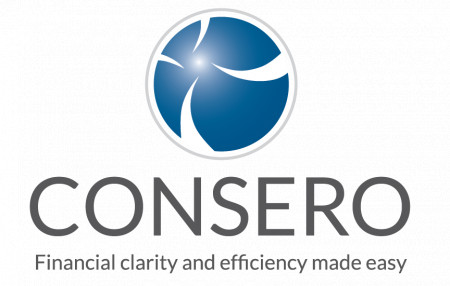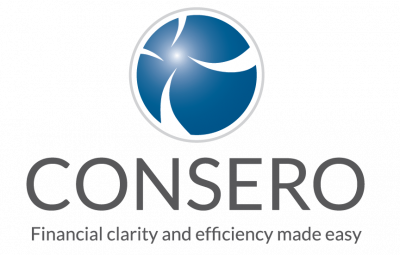Consero Identifies the Four Tenets of Finance as a Service (FaaS): A New Standard of Service

AUSTIN, Texas, February 8, 2022 (Newswire.com) - With the proliferation of companies selling "Finance as a Service" (FaaS) options, it may seem as if FaaS is merely a new marketing term for outsourced accounting firms. But for Bill Klein, the co-Founder and President of Consero Global, FaaS is a discipline that lives up to four key tenets of client service.
Outsourcing accounting and finance duties have only grown more popular over the last few decades, with a clear value proposition of reducing HR burden, and ideally freeing up the in-house team to focus on more strategic priorities. The industry has been living up to that promise, as evident by that growth. Recently, a new practice within the sector, known as Finance as a Service, or FaaS, has been taking a greater share of the outsourced accounting industry.
But what exactly is Finance as a Service (FaaS)? And how does it differ from other outsourced accounting and finance alternatives? Bill Klein, the co-founder and President of Consero Global, one of the fastest-growing FaaS firms, defines it as something distinct from a traditional outsourced accounting firm, because FaaS is a far more comprehensive approach to the business, with greater transparency and rigor. Klein believes that any firm marketing themselves as FaaS providers should meet four key tenets of this approach.
Tenet #1: FaaS solutions incorporate a full suite of experienced staff, proven operational processes and pre-integrated software to reliably manage all of a company's finance and accounting needs
Klein believes that FaaS companies are different from traditional accounting services firms and financial software Value Added Resellers (VARs). "Many traditional outsource providers claim to offer all of the components of FaaS but rather than a pre-built platform configured for each customer, they pull from a grab bag of disparate solutions cobbled together on a customer-by-customer basis. For instance, they might offer custom software implementations and add on separate outsourced services for companies who want that.
The problem is the outsourced services in that example are really just some accounting staff thrown on top of a grounds-up software build combined
with whatever process is being used by that customer. There is no way the customer can achieve the levels of quality, efficiency, and reliability of a FaaS solution where specialized team members work with the same baseline processes and software they utilize with every other customer.
Along with the efficiency and quality advantages offered by the FaaS approach, customers are also able to achieve these results must faster than by doing it themselves or by using a traditional outsourced services provider. The approach used by traditional outsource service providers is to effectively reinvent the wheel with every new customer engagement, rather than using the same pre-integrated processes and software every time and configuring it to the unique needs of each customer. "A lot of our customers can't understand how we're able to onboard them onto a new platform in 30 days, as they're used to systems or software adoption dragging on for 9-12 months or longer," says Klein. "And that makes sense given what they are used to is a grounds-up build of an application stack either through a software VAR or through an outsourced provider."
"Our standardized set of pre-integrated processes and software allow us to devote even more time to configuring each customer solution to their unique needs and still have them up and running in a fraction of the time they could achieve otherwise," Klein states, which leads to the next tenet.
Tenet #2: FaaS provides a single, self-service software interface.
There's no shortage of powerful software solutions for finance operations, but more often than not, outsourced accounting firms will implement multiple applications, which the client themselves will then need to understand at a working level. In Klein's experience, this leads to a single person, either at the service provider or within the Company, who knows how the navigate the different systems and get to the relevant information. "During a recent discussion with our sales team, one of our potential clients talked about how they relied on essentially a 'Wizard in a Box' to share financial info," says Klein. "This wizard is a person who would be able to take any request, download the answer from any number of different systems in place and serve it up to whoever asked."
"This made the 'wizard' very impressive to most folks at the company, except for the CEO, who didn't appreciate having one person in the entire company able to retrieve relevant financial information." And even if that "wizard" happens to be the contact at the service provider, there's the same risk of reliance on a single individual for critical financial data, which is essentially the oxygen for business decisions.
Klein explains that this complexity is a result of the powerful tech solutions available today. Many providers will mix and match applications, in an attempt to leverage best-of-breed software functionality. That also means if the client wants to see certain information, they have to know every system, and how each of them is used, which can lead to misunderstandings as these solutions aren't integrated, so the client not only needs to know what information to look for but also which system stores that information.
"In order to make information more accessible to our customers, we built a solution using a best-of-breed suite of 3rd party software applications, but then added a light unification layer atop this software stack, so our clients have a single login to access all of their financial data," says Klein. "Our single-user interface is called Simpl® and it is laid out in such a way that even non-finance staff can easily access the information they need when they are granted permissions to different areas." This is vital, given that a lot of software solutions merely export to Excel spreadsheets that need to be "interpreted" by someone on the finance team. With Consero's solution, designated executives and business managers can login and quickly get what they need, becoming a self-service option for the client and enabling more accountability with business leaders.
Tenet 3: FaaS provides transparent and scalable service-based pricing for the client's needs today and tomorrow
Typically, outsourced accounting firms will either charge by the hour, or by some total monthly fee based on some behind-the-scenes assumption of the level and number of staff assigned and required software components. Consero used this model as well for some time, but it ultimately proved to be less than ideal for clients.
"Charging by the hour isn't transparent, as it shouldn't be the customer's problem if it took the provider longer to do the same work one month vs. the prior month," says Klein. "And if the pricing is based around a fixed monthly fee, what exactly is included in that monthly fee? At what point will the client grow into having to pay more and how much more?" Those are questions that are difficult for a provider to answer when they just build price on a cost-plus basis for the current scope of work.
This lack of transparency hinders the ability for a company to plan for its future growth. "How do they figure out what their financial operations will cost to administer when they grow from 20 employees to 100? No doubt there will be more transactions, more vendors, and the like, but what will that mean in fees? All too often that's guesswork on the part of the customer and the provider," says Klein. "The reason for that guesswork is that inconsistent delivery across engagements leaves the outsourced provider lacking in confidence needed to have a price-per-service model."
Instead, Consero charges by service, which allows clients to know exactly what they're paying for and how much it will be as they scale up or down. "This shifts the burden on to your FaaS provider, to make sure they have the competence, staff and systems to deliver that service in an excellent and timely manner," says Klein. It also drives the FaaS provider to automate as much as possible, with the increased rigor that comes with such efforts. "If a service provider is charging by the hour, why would they automate anything, which would reduce their fees?" And in this era of labor inflation, pay-per-service helps insulate clients from the worst of those fluctuations, as a provider automates more and more in response.
Tenet 4: FaaS offers skilled finance and accounting professionals with the right expertise for the client's needs and priorities
Much of financial operations are fairly straightforward, in processing transactions and producing financials, but there are elements that require strategic thinking and experience in the trenches. Consero has built up its team with an eye to these additional needs, whether it's CFO support or an M&A program.
"For example, the client is plotting a series of acquisitions, we'll have a team well-versed in seamlessly onboarding new entities into a parent company's finance platform ready to jump in without disrupting the core service team members already delivering core finance services to the parent company," says Klein. Along with situational expertise like integrating acquisitions, FaaS providers also have team members with sector expertise which translates into, for example, understanding revenue recognition matters for software companies.
With FaaS, the most crucial element of this discipline is "service." It's what unifies the comprehensive offering, that single, easy-to-use interface, the transparency in pricing, and the expertise for the more complex issues facing the client. "That's why FaaS isn't just a new marketing term for an existing practice, but a new standard of service that we aim to live up to with every client. These four tenets are what customers should be demanding from anyone calling themselves a provider of FaaS," says Klein.
ABOUT CONSERO
Consero provides outsourced BPO services through their "Finance as a Service" (FaaS) offering for B2B and Investment Management clients. Consero is disrupting the way businesses build and maintain their finance function. For over a decade, the expert team at Consero has refined processes and incorporated software to provide stakeholders with clear insight into company performance and guidance to identify opportunities that can accelerate growth.
Through the combination of enterprise-level, industry-leading software and a dedicated team of experienced finance professionals, Consero delivers the services necessary to support a company's daily operations, accelerate growth, and prepare for the future.
Services include a pre-integrated finance and accounting software stack, transactional accounting, controller-level compliance and reporting, financial planning and analysis and strategic CFO support (as needed).
Contact:
Bridget Howard
Senior Director of Marketing
512-277-4443
bridget@conseroglobal.com
Source: Consero Global
